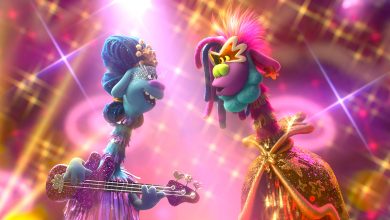Congrats on your Light-Skinned Kids?

As a first-generation Indian-American daughter of immigrants, I’ve grown up surrounded by a fixation with skin color. Most Indian women would never dream of the privilege (tic) of marrying a man lighter than herself. So when I first married my predominantly European-American husband, one of my relatives lovingly said (translated from Tamil), “How wonderful that your children will be so fair-skinned!” Mind you, this was long before the idea of children was tangible in my mind, although half of the gametes necessary were already formed in my body. At the same time, my white friends were always so jealous of my skin tone. I know, I know, my skin looks good in everything.
When my first child was born, another of my relatives gushed (in English this time), “Oh, look at that color, I love color!” Color here refers to the light skin tone of my daughter, as compared to that of an average Indian.
I know that if you’re American, you’re probably thinking, “What the hell is with these people?” Honestly, I don’t blame either of them for the sentiment so deeply socialized into a billion plus Indians and other races over generations. In fact, I can only love them more for expressing what they deem compliments and well-wishes. Over many visits to India, I’ve seen women and girls striving to stay as fair as possible. From my grandmother’s maid slathering on “Fair and Lovely” cream and offering a dollop to me, to my relatively wealthy teenaged cousin staying out of the sun at all costs, and another cousin caking on white powder at the age of 3 or 4, the obsession affected all ages and classes I encountered.
For some reason, maybe because I’m American, I managed not to internalize the fairness mania. When my aunt admonished me to stay out of the sun before heading to India for my wedding reception, I just laughed and said that wasn’t going to happen; my spoiled little dog was too accustomed to daily dog park visits.
While I don’t hold it against my family plus or minus a billion people for feeling this way, it pisses me right off when the Indian media and celebrities perpetuate the idea that success, happiness, beauty, and popularity are contingent on the shade of one’s skin. Check it out—not only are women victimized by this ideology—men and little boys are being roped in, too. This commercial isn’t subtitled, but I’m pretty sure you’ll get the gist (I don’t know Hindi either, I’m a proud Tamil girl. More on that another day):
In case you’re not familiar with Bollywood, the guy shamelessly hocking this crap is none other than Shah Rukh Khan A.K.A. SRK, a man beloved by the same billion people I mentioned earlier. No wonder 4-year-old Indian kids look at their reflections longing for lighter skin.
Now, there are myriad reasons for this preoccupation with fairness that I won’t go into, ranging from colonialism to the caste system. There aren’t myriad valid or ethical reasons for the Skin Consultation Report I just received from Fair and Lovely. The questionnaire asked about my skin, and I rated fairness as the least of my concerns. I was most worried about dry winter skin. Based on my answers, my report generated this lovely tidbit among others: “Many people experience dry skin in winter like you. Therefore, Fair & Lovely Winter Fairness Day Cream has been specially formulated to keep your skin moisturized without compromising on your fairness.” Um, what? I can’t re-claim the two minutes it took me to take answer these questions, and frankly, I regret it.
Hindustan Unilever, the owner of the Fair and Lovely franchise, is obviously making a fortune on this drivel. I don’t blame them the same way I don’t blame the sellers of diet pills. The only way to combat these corporationy corporations with all of their corporate greed is to indoctrinate little girls and boys with the message that all skin colors are beautiful. For that, I commend companies like Tanishq Jewelry for embracing dusky models, and the Dark is Beautiful campaign for messages like this:
I’m hoping that over the next few generations, the notion that “Dark is Beautiful” won’t even be necessary. We’ll have moved on to a utopian notion that beauty is beauty, no matter the shade. Hindustan Unilever would be well served to get rid of the Fair and Lovely/Handsome line and start marketing products to Indians promising a youthful and healthy glow for all skin colors. Because I love my caramel shade, but I could totally go for less wrinkles!





“Without compromising on your fairness”… ew.
Thank you for sharing your story with us.
I love that “dark is beautiful” commercial. This was great.
A friend of mine was an exchange student in India, and she told me how people there would stop her on the street and ask her how she got so pale (she’s a redhead with the complexion you’d expect). Not that the issue of skin color is settled in the US; far from it. It just takes a different form.
The same thing happens in the Hispanic/Latino community. That being lighter is seen as “better”. I have seen it all my life even as a light-skinned Hispanic. This is because my mom is much darker and I take more after my late father. Hispanics/Latinos can be any color even though American media portrays all Latinos as being tan or olive-skinned. The darker ones have this internalized hate of their own skin color. When they tend to comment on when they think another person is too dark. This is called “colorism”.